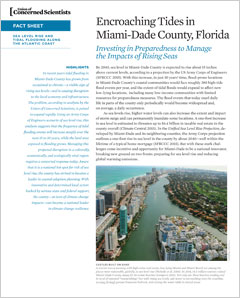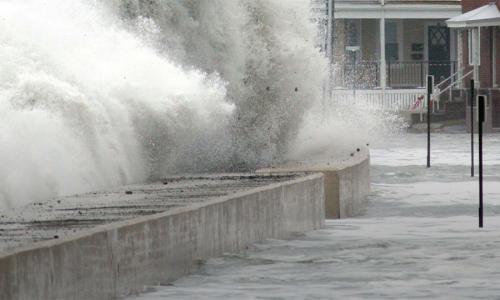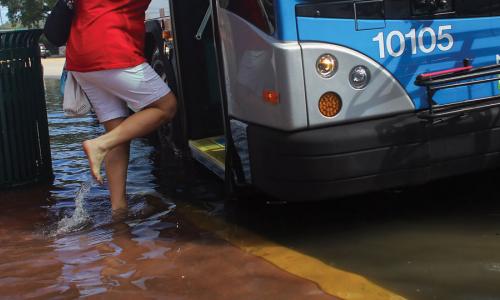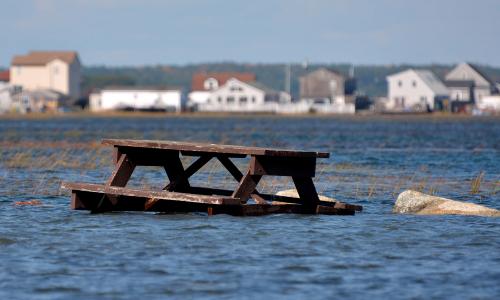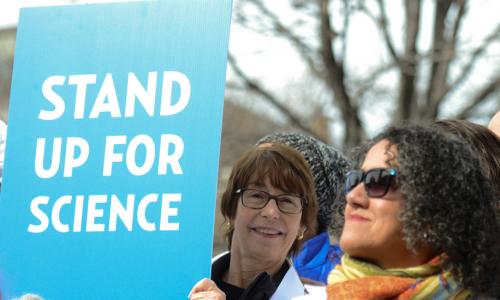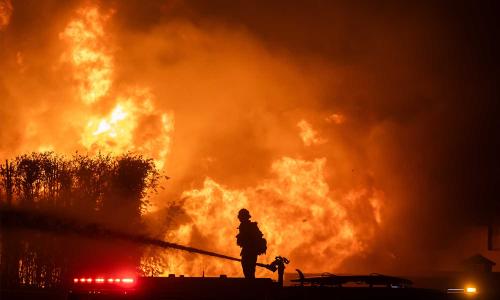Miami-Dade County in southeast Florida is a national hot spot for the risks of sea level rise.
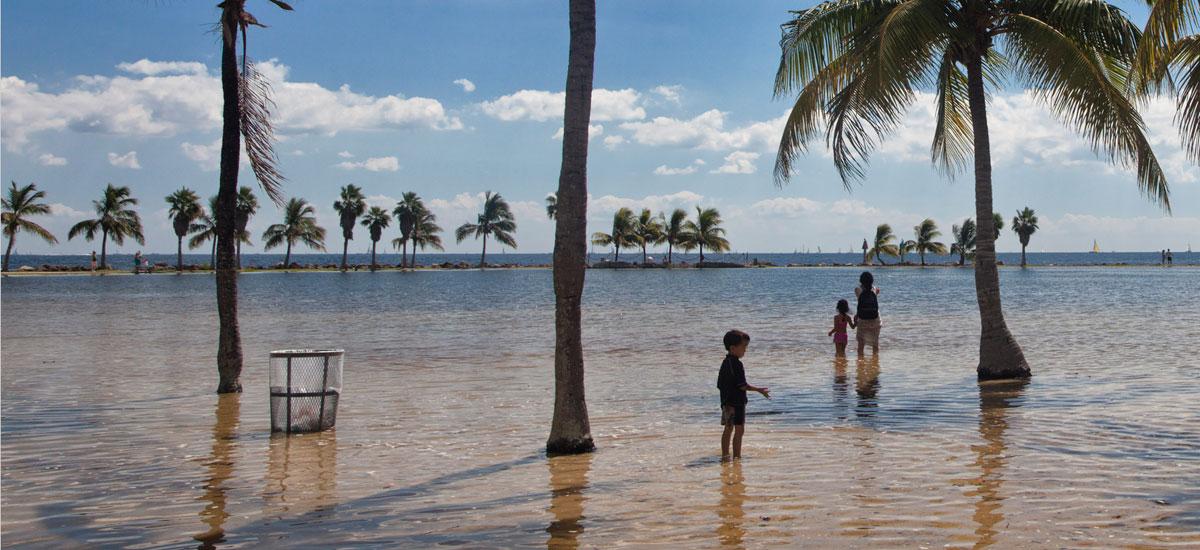
As it prepares for increased flooding events and other consequences of sea level rise, the county has strived to become a leader in coastal adaption planning.
With innovative and determined local action backed by serious state and federal support, the county can become a national leader in resilience.

The consequences of sea level rise
Miami-Dade County faces a number of sea level rise risks, including increased urban flooding, increased saltwater intrusion and contamination of drinking water supplies, and flooding of power plant substations and ensuing power outages.
By 2045, sea level in Miami-Dade County is expected to rise about 15 inches above current levels, according to a projection by the US Army Corps of Engineers.
With this increase, in just 30 years’ time, flood-prone locations in Miami-Dade County’s coastal communities would face roughly 380 high-tide flood events per year, and the extent of tidal floods would expand to affect new low-lying locations, including many low-income communities with limited resources for preparedness measures.
The flood events that today snarl daily life in parts of the county only periodically would become widespread and, on average, a daily occurrence.
As sea levels rise, higher water levels can also increase the extent and impact of storm surge and can permanently inundate some locations. About one-fifth of urban Miami-Dade County (namely, the area outside of the Everglades) lies at elevations that are within one foot of sea level at high tide; a one-foot increase in sea level is estimated to threaten up to $6.4 billion in taxable real estate in the county overall.
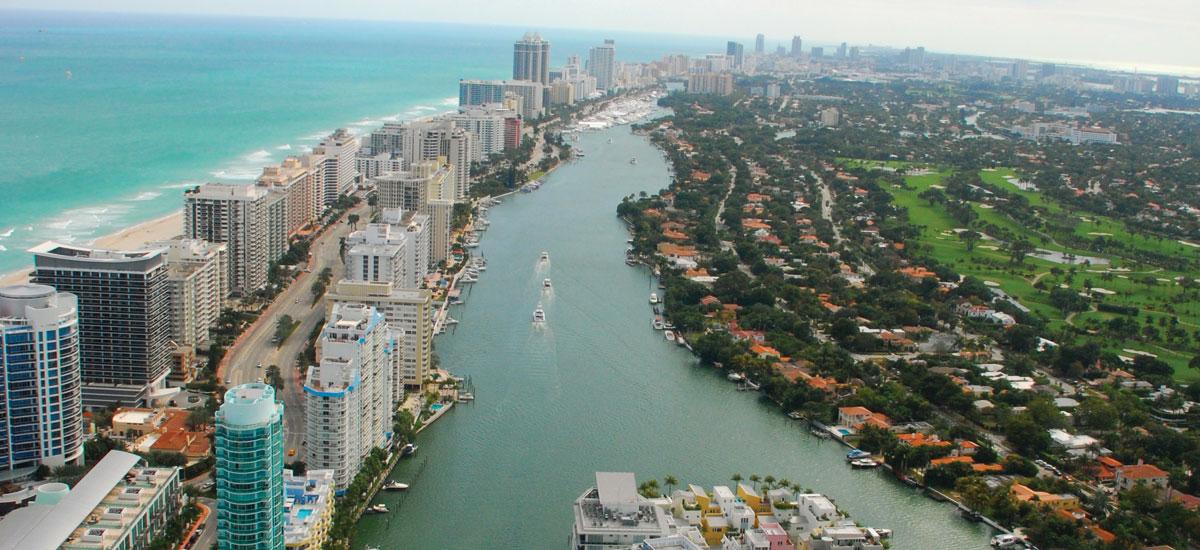
Opportunities for action
The secure and economically vibrant future that Miami-Dade County is working to build will depend in part on the quality and comprehensiveness of local, state, and federal responses to climate change.
Many municipal and county officials are beginning to lead on this issue. And civic engagement and public awareness are rising. But local action is not enough.
Miami-Dade needs state and federal action on two fronts: increasing investments in preparedness so that impacts can be prevented and managed, and reducing global warming emissions so that the rate of sea level rise can be slowed over time.
